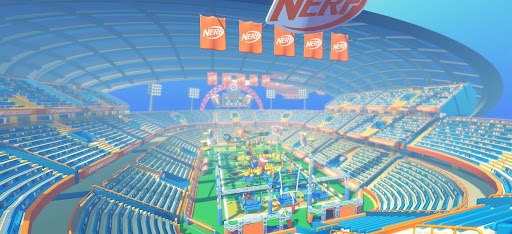The Advantages of Developing HTML5 Games with Unity
In the ever-evolving landscape of game development, HTML5 has emerged as a versatile and powerful platform for creating games that can be played directly in web browsers. When it comes to HTML5 game development, Unity, a widely popular game engine, has become a prominent player. In this article, we'll explore the advantages of harnessing the combined might of Unity and HTML5 to craft engaging games that captivate a global audience.
What is HTML5 Game Development?
HTML5 game development represents a modern approach to creating games that run seamlessly in web browsers. It relies on three fundamental web technologies: HTML (Hypertext Markup Language), CSS (Cascading Style Sheets), and JavaScript. These technologies, once primarily used for building static web pages, have evolved to support interactive and visually appealing games.
Unity: A Powerhouse in Game Development
Before we delve into the advantages of Unity in HTML5 game development, let's take a moment to appreciate Unity's stature in the game development world. Unity is renowned for its versatility, supporting both 2D and 3D game development across a multitude of platforms. Its intuitive interface and vast library of assets make it an appealing choice for developers.
Advantages of Combining Unity with HTML5
Cross-Platform Compatibility
Unity's integration with HTML5 brings the advantage of cross-platform compatibility. Games developed with Unity and exported as HTML5 can be played on various devices and operating systems. Whether your audience prefers desktop computers or mobile devices, Unity's HTML5 export option ensures that your game reaches them effortlessly.
Accessibility
One of the standout benefits of HTML5 game development services is their accessibility. Unlike some game platforms that require players to download and install plugins, HTML5 games can be played directly in web browsers. This ease of access eliminates the barriers that come with plugin installations, potentially attracting a larger and more diverse player base.
No Plugin Required
The decline of Flash and the rise of HTML5 have transformed the web gaming landscape. Flash, once a dominant force, required a browser plugin that has since become obsolete. HTML5, on the other hand, functions seamlessly without any additional downloads or plugins. With Unity's HTML5 export feature, you can create games that embrace this plugin-free future.
Reach a Wider Audience
HTML5 games have the unique advantage of being shareable via web links. Players can easily share a link to your game with friends and family, promoting viral growth. This word-of-mouth marketing potential can significantly expand your game's reach.
Integration with Web Technologies
HTML5 games can seamlessly integrate with web technologies like APIs (Application Programming Interfaces). Unity's ability to communicate with web services allows for dynamic interactions, enabling features like in-game purchases, leaderboards, or real-time multiplayer capabilities.
SEO Benefits
Interactive content is favored by search engines, and HTML5 games provide just that. By embedding your game within your website, you can boost your site's SEO ranking. This not only attracts gamers but also increases the visibility of your website.
Practical Examples
To illustrate the real-world impact of Unity and HTML5 in game development, let's explore a couple of success stories.
Example 1: "Crossy Road"
The highly addictive mobile game "Crossy Road" was developed using Unity and exported as HTML5. Its simple yet engaging gameplay and accessibility contributed to its global success.
Example 2: "Slither.io"
"Slither.io" is another HTML5 game sensation that demonstrated the power of combining Unity and web technologies. It quickly gained millions of players due to its web-based accessibility and addictive gameplay.
Challenges and Considerations
While the marriage of Unity and HTML5 offers numerous advantages, it's essential to acknowledge potential challenges.
Performance Optimization
HTML5 games can sometimes face performance issues, especially on mobile devices with limited resources. Careful optimization is crucial to ensure smooth gameplay.
Browser Compatibility
Different web browsers may interpret HTML5 and JavaScript differently, leading to compatibility issues. Thorough testing across various browsers is essential.
Security
As with any web-based application, security is a concern. Protecting your game against hacks and exploits should be a priority.
Conclusion
In the dynamic world of game development, Unity and HTML5 form a formidable alliance. The advantages of this combination, from cross-platform compatibility to SEO benefits, unity game development company make it an appealing choice for game creators. By harnessing the power of Unity and HTML5, you can craft games that not only entertain but also reach a vast and diverse audience.
Have you explored Unity's HTML5 export feature or developed HTML5 games? Share your experiences and insights in the comments below. Join our community to stay updated on the latest developments in game development with Unity and HTML5.


No comments yet